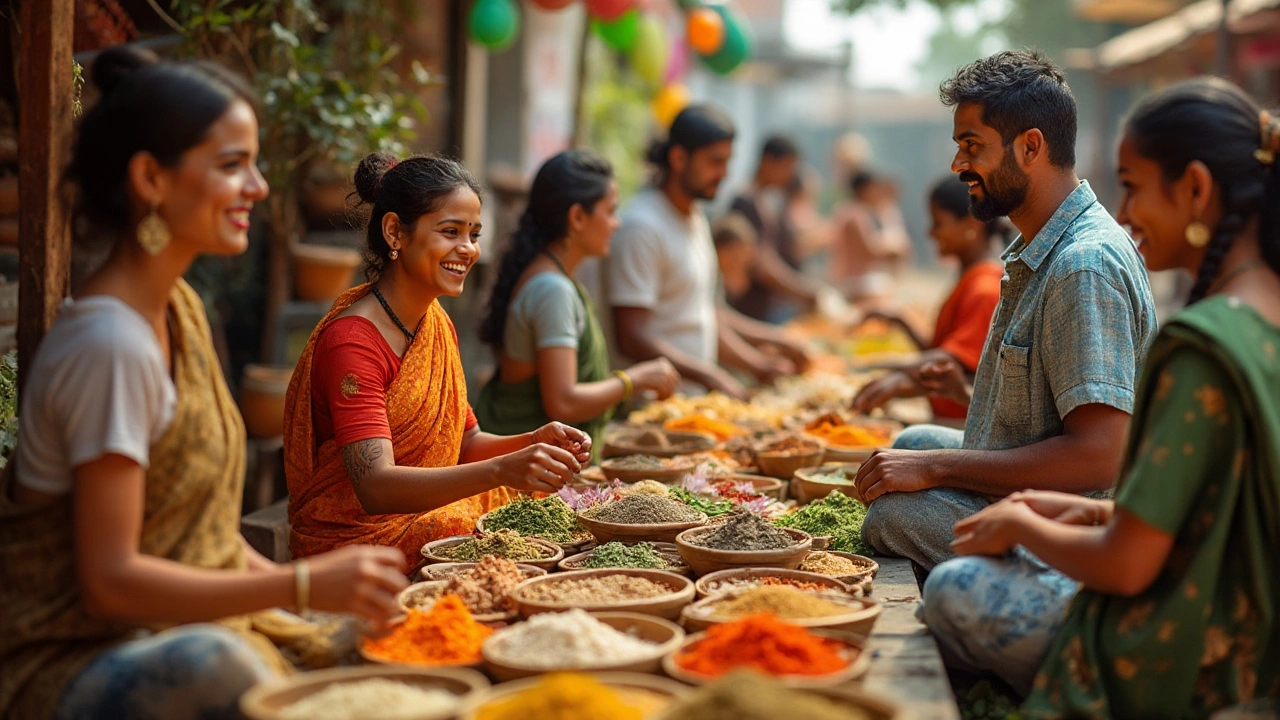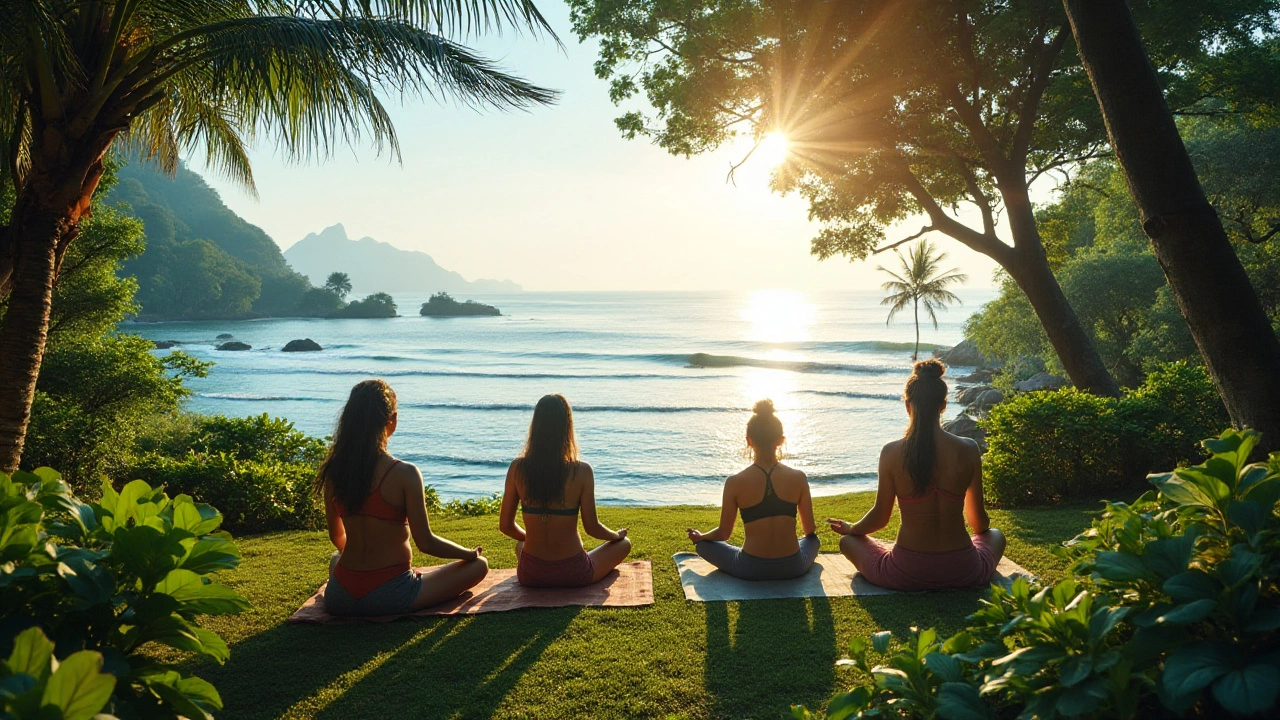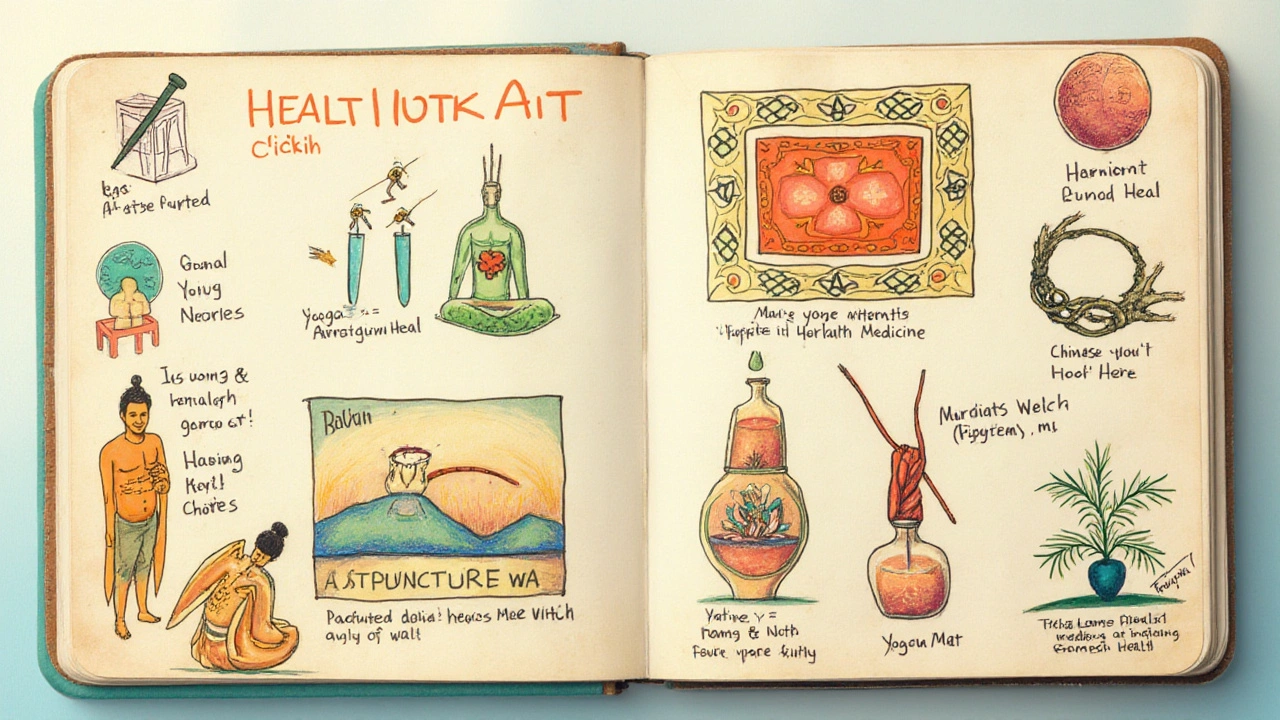
- Jan, 21 2025
- 0
The concept of the 'healthiest race' may seem intriguing, yet it's an exploration that goes well beyond mere genetics. It connects deeply with culture, lifestyle, and the environment in which people thrive. Each ethnic group around the world carries unique traits and practices that contribute to its overall health and longevity.
Medical tourism has gained immense popularity as individuals seek wellness solutions and health care experiences in different parts of the globe. For many, it’s about discovering and living health traditions that these ethnicities embody. From balanced diets and active lifestyles to stress-free living conditions, each aspect contributes significantly to health.
Understanding these diverse practices not only enriches our knowledge but also opens doors for those willing to immerse themselves in health-centered experiences. It's not just about identifying the healthiest race but embracing the holistic view of health that various cultures offer.
- Understanding Ethnic Health
- Cultural Practices and Well-being
- Medical Tourism: A Global Trend
- Practical Tips for Health-focused Travelers
Understanding Ethnic Health
The study of ethnic health involves looking into how different racial groups around the world boast unique health profiles and life expectancies. Genetics play a crucial role, yet it's just a piece of this vast puzzle. Lifestyle, diet, and social factors substantially impact the health outcomes of various ethnic communities. For example, the Okinawans of Japan are known for their exceptional longevity, often attributed to their plant-based diet, rich in fish, soy, and a variety of vegetables. This dietary habit helps keep their hearts healthy and diseases at bay.
Another crucial aspect is the communal lifestyle prevalent among some ethnic groups which fosters emotional well-being. Many Southern European countries such as Italy and Greece manifest this, where large family gatherings and strong community bonds are a way of life, possibly explaining the lower stress levels and increased happiness often observed among these populations. It stands as a reminder that sometimes, it's not just about food or exercise, but human connections that matter most.
Rich traditions and active lifestyles also contribute significantly to health. The Maasai of Kenya, who are pastoralists by tradition, maintain a diet that's high in dairy and meat. Yet, their active lifestyle, constantly on the move with their cattle, keeps them physically fit and less prone to lifestyle diseases common in sedentary cultures. There's a lesson to be learned here about the balance between activity and diet.
"Health is not just an absence of disease but a state of complete physical, mental, and social well-being," a well-articulated view by the World Health Organization emphasizes the broad spectrum of factors affecting ethnic health.
To further understand ethnic health, we must also consider the environmental influences. Certain regions, such as those in the Mediterranean, offer climates and landscapes that naturally encourage outdoor activities, fostering healthier lifestyles among locals. In such areas, prevalent sunshine and mild weather invite people to engage in regular physical activity, significantly improving their physical health outcomes. This aspect of ethnic health emphasizes how interconnected humans are with their environments.
The allure of seeking out the healthiest race lies in the idea that the practices and lifestyles of these communities can offer valuable lessons, contributing to the growing field of medical tourism as individuals pursue holistic health experiences. As people adapt and embrace these diverse traditions, it becomes evident that health transcends beyond the genetic makeup to encompass a wider cultural and lifestyle paradigm woven by the rich tapestry of diverse human races.

Cultural Practices and Well-being
Cultural practices have an immense impact on ensuring the health and well-being of any community. Across the globe, diverse ethnic groups have developed unique lifestyles and traditions that not only reflect their heritage but also contribute immensely to their health. For instance, the Mediterranean diet commonly followed in Mediterranean countries like Greece and Italy is renowned for its health benefits. This diet emphasizes the consumption of fresh fruits, vegetables, olive oil, and lean proteins like fish, which is believed to promote heart health and longevity. Alongside diet, there's the Japanese tradition of "ikigai,” which means finding purpose, often correlating with higher life expectancy and a content life.
Delving into the rich tapestry of cultural practices further reveals the Scandinavian way of incorporating minimalist lifestyle habits. The Nordic countries often top the charts for healthy living, and it's largely attributed to their cultural inclination towards balance and simplicity in food, work, and leisure. The emphasis on outdoor activities, irrespective of the weather, encourages physical fitness among all age groups. In contrast, Asian cultures often prioritize holistic health approaches. Traditional practices such as yoga and meditation in India focus on mental well-being which plays a crucial role in maintaining physical health. These practices have now garnered global acceptance for their effective contribution to reducing stress.
The African continent, with its myriad of ethnic groups, provides a diverse range of health-promoting traditions. The Maasai tribe of East Africa, for instance, are known for their active lifestyle and diet predominantly consisting of natural foods, enabling them to maintain cardiovascular health. This is a good reminder that cultural practices surrounding agriculture and food play a vital role in sustaining health. In the contemporary world, where many seek fast solutions, these age-old practices show us the importance of a grounded lifestyle.
Interestingly, scientific research has started to back some of these traits. A study published in the journal 'Nature' highlights the impact of traditional culinary practices and their effects on gut bio-diversity, which is pivotal for maintaining a robust immune system. Addressing similar evidence, Dr. Stella Navarro, a leading cultural anthropologist, once mentioned,
"Cultural practices are more than rituals; they are living, breathing traditions that continue to sustain communities through holistic health approaches."Her perspective offers a wonderful insight into why travelers are increasingly looking towards cultural experiences to boost their own health regimens.
Encompassing the varied array of cultural practices highlights not just the similarities among different ethnic groups, but also celebrates their unique identities. It shows how individuals can incorporate these practices into their daily lives and elevate their health standards. Attributes such as the Okinawans' philosophy of "Hara Hachi Bu” or eating until one is 80% full, reflect the mindfulness ingrained in their lifestyle. Consequently, observing and imbibing such health-enhancing behaviors can redefine our understanding of well-being and possibly steer us towards more meaningful and health-oriented travels. These practices form a bridge, connecting the past with a healthier future, beckoning curious souls to explore the world's myriad cultural pathways to wellness.

Medical Tourism: A Global Trend
In recent years, medical tourism has emerged as a significant global trend, attracting millions of people seeking health therapies outside their home countries. This booming industry is driven by a myriad of factors, including affordability, access to advanced technologies, and the unique health practices of various cultures. For many travelers, the journey is not just about addressing medical needs but also about embracing holistic health experiences offered by the world's healthiest ethnicities. Countries like Thailand, Mexico, and India have become hotspots, offering a combination of quality health services and affordable packages that appeal to those looking for elective procedures or alternative treatments. Notably, the cost savings can be substantial, which often covers the expense of travel and still amounts to less than what one might pay back home.
Interestingly, the profile of a medical tourist is as diverse as the services they seek. From cosmetic surgeries and dental work to wellness retreats and traditional healing practices, there's a wide array of offerings tailored to meet different needs. According to Patients Beyond Borders, medical tourism is now a $87 billion industry, with an estimated 21 million patients traveling abroad each year. This figure highlights just how popular and significant medical tourism has become on a global scale. It's not merely the promise of cost savings that draws people, but also the assurance of receiving quality care and the chance to recover in a welcoming, relaxing environment. Health destinations often double as vacation spots, allowing tourists to enjoy the local culture and natural beauty during their stay.
Research and careful planning are crucial before embarking on a medical tourism journey. Prospective patients should consider several factors, such as the accreditation of the medical facility, the qualifications of the medical professionals, and the legal implications of undergoing treatment abroad. It's essential to ensure effective communication with healthcare providers and to fully understand the scope and risks associated with any medical procedure. Many choose to employ the services of medical tourism agencies, which can facilitate the process by organizing logistics, setting appointments, and providing vital information about the destination. An experienced agency can make a world of difference in navigating a foreign healthcare system and ensuring a smooth, stress-free experience.
Medical tourism also highlights the ongoing globalization of healthcare. The exchange of medical knowledge and practices across borders encourages innovation and improvement in health services worldwide. It fosters healthy competition, motivating healthcare providers to elevate the standard of care they offer. This can result in benefits not only for patients traveling abroad but also for those receiving care domestically, as healthcare systems work to remain competitive. In this new era, where boundaries are blurring and health is a global concern, medical tourism stands out as a testament to how people value their well-being and are willing to cross borders to maintain or restore it.

Practical Tips for Health-focused Travelers
Embarking on a journey to enhance your well-being is a commendable pursuit. When considering medical tourism as a gateway to better health, understanding which options align best with your goals is essential. First, research is your most powerful tool. Before booking a trip, gather information on countries and regions known for their health customs. Locations like Japan, noted for their appreciation of balanced diets rich in vegetables and fish, and the Mediterranean regions, famous for olive oil and nuts, offer fascinating insights into living well. Understanding these local diet staples and incorporating them into your own routine can be transformative.
A safe and successful trip requires not just knowing your destination but also understanding its health infrastructure. Research hospitals or wellness centers with internationally recognized accreditations. This ensures that you receive care that adheres to global health standards. Consulting with healthcare providers who have firsthand experience in these locations can also provide reassurance. Ensure that you have the necessary travel insurance that covers unexpected health emergencies abroad. It's better to be prepared than to face challenges when seeking health treatments.
Financial planning goes hand in hand with health tourism. Establish a realistic budget considering travel, accommodation, and treatment costs. Look for package deals from reputable medical tourism agencies which often provide comprehensive solutions including medical procedures, recovery retreats, and local excursions. Engaging fellow travelers on forums or communities, like those hosted on social media platforms, can offer personal insights and anecdotes that enrich your travel planning.
Adapting to new environments can be challenging; hence, maintaining a balance between exploring and resting is vital. Upon arrival, acclimate yourself to the local climate and time zone, which may involve adjusting your routine gradually. This transition allows your body to adapt seamlessly and reduces the risk of sudden health disturbances. Incorporating local customs and practices, such as meditation in India or Tai Chi in China, not only enhances the experience but fosters a deeper appreciation of the culture.
Language barriers could pose a challenge during international health trips. Engaging a local interpreter can bridge communication gaps between you and healthcare providers, ensuring that your needs and concerns are accurately conveyed. Additionally, learning a few basic phrases in the local language fosters goodwill and encourages more meaningful interactions with locals. Such gestures are invaluable and enhance your overall travel experience.
For a comprehensive understanding of health-focused travel, consider the words of global health enthusiast Dr. Johansen, who stated,
"Traveling for health is not just about treatments; it's about embracing a lifestyle change that you carry back home."Keeping this perspective at the forefront of your journey can amplify its benefits significantly and inspire longer-lasting health improvements.
Nikhil Verma
I'm a dedicated physician with a passion for exploring the intricacies of medicine, focusing on the unique healthcare challenges in India. I spend much of my spare time writing articles aimed at improving public understanding of health issues. Balancing my clinical practice and writing allows me to reach a wider audience, sharing insights and fostering a deeper appreciation for medical advancements. I derive immense satisfaction from both treating patients and engaging with readers through my writing.